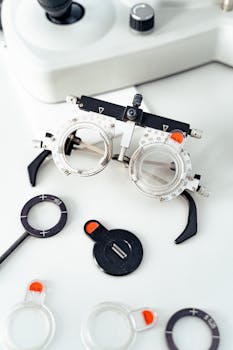
More Vision & Eye Care Articles
Retinal Detachment and Its Urgency: How Long Before It Leads to Blindness?

Retinal detachment is a serious eye condition that can lead to blindness if not treated promptly. Understanding how long before retinal detachment causes blindness is crucial for anyone experiencing symptoms or at risk of this condition. Acting quickly is vital because the longer the retina remains detached, the higher the risk of permanent vision loss.
Understanding Retinal Detachment
The retina is a thin layer of tissue at the back of the eye, responsible for capturing light and sending visual information to the brain. When it detaches, it can no longer perform this function effectively. Causes of detachment include aging, trauma, diabetes, and inflammatory eye disorders. Symptoms might be sudden and severe, such as seeing floaters, flashes of light, or a gray curtain over part of your vision.
How Long Before Retinal Detachment Causes Blindness?
The timing of vision loss from retinal detachment varies among individuals. Immediate medical evaluation is critical. Typically, if treatment is received within days, chances of preserving vision are higher. Delaying for weeks might result in partial or total loss of vision in the affected eye. Therefore, prompt diagnosis and treatment are paramount.
Diagnosis and Treatment Options
If you suspect retinal detachment, see an ophthalmologist immediately. They will conduct a comprehensive eye examination, potentially using ultrasound or imaging techniques, to confirm the detachment. Treatments vary based on the severity and include laser therapy, freezing (cryotherapy), and surgical interventions such as pneumatic retinopexy, scleral buckling, or vitrectomy.
The Importance of Early Detection
Early detection significantly improves the prognosis. While not all detachments lead to blindness, the risk increases the longer treatment is delayed. Conditions like posterior vitreous detachment or lattice degeneration might precede retinal detachment and require regular monitoring.
How to Protect Your Vision
Prevention and protection of eye health are vital. Regular eye exams can identify warning signs early. Managing health conditions like diabetes and protecting eyes from physical trauma can lower risk. Adopting a healthy lifestyle, much like managing personal health through body mass index (BMI), benefits overall eye health as well.
Seeking Professional Guidance
Any changes in vision should prompt immediate consultation with an eye care professional. Specialized care provides the best chances of recovery and can limit the risk of permanent vision loss.
For more detailed information on eye health, visit the health section of Wikipedia.
Conclusion
Understanding how long before retinal detachment causes blindness is crucial due to the urgent nature of the condition. Quick medical intervention can make a significant difference in outcomes, highlighting the importance of early symptom recognition and timely treatment.
- Retinal detachment is an eye emergency needing immediate attention.
- The risk of blindness increases with treatment delays.
- Symptoms include sudden vision changes like floaters and light flashes.
- Consult an ophthalmologist immediately if you suspect detachment.
- Protecting eye health helps in early detection and prevention.
FAQs
What are the symptoms of retinal detachment?
Symptoms include seeing floaters, light flashes, shadows, or a gray curtain moving across your vision.
Who is at risk of retinal detachment?
Risk factors include aging, severe myopia, eye injury, family history, and certain medical conditions like diabetes.
Can retinal detachment be fully cured?
Treatments are available to repair detachments and stabilize vision, but complete vision recovery depends on the duration before treatment.
Is retinal detachment preventable?
Regular eye exams and managing underlying risk factors like diabetes can help reduce the likelihood of experiencing retinal detachment.
Why is rapid treatment essential for retinal detachment?
Quick treatment minimizes the risk of permanent vision loss, as the retina’s function declines the longer it remains detached.
Other Articles You May Find of Interest...
- The Hidden Causes and Solutions for Enoftalmos
- Navigating the Challenges of Traumatic Iritis and Its Impact on Eye Health
- Eyelid Papilloma: Causes, Symptoms, and Treatment Options Explained
- Is 20/40 Vision a Cause for Concern?
- Exploring the Significance of the Ora Serrata in Eye Health
- Relief for Eye Discomfort: How Artificial Tears Help Subconjunctival Hemorrhage
- Periorbital Ecchymosis: Causes, Symptoms, and Treatment Options for Raccoon Eyes














